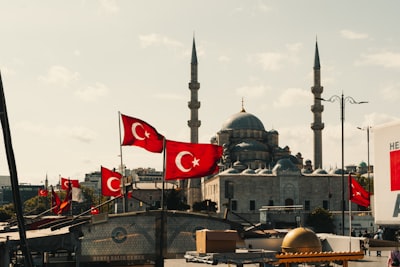Summary
The article highlights the critical and complicated role that Turkey plays in shaping the geopolitical future of the Middle East, particularly in relation to its increasingly tense relationship with Israel. Once characterized by cooperation, Turkey and Israel’s ties have frayed dramatically, with Turkish President Recep Tayyip Erdogan now openly comparing Israeli Prime Minister Netanyahu to Adolf Hitler. This shift comes amid a recent dramatic escalation: Israeli airstrikes on Iran, U.S. retaliatory strikes, and the subsequent American-brokered ceasefire. The argument presented is that Turkey and Israel, more than any other regional actors, have the capacity to influence the region’s trajectory in military, diplomatic, and security spheres.
Analysis
The deterioration of Turkey-Israel relations signals a deeper realignment in the Middle East. Historically, both countries benefited from cooperation, sharing intelligence and economic ties, while providing balancing power against regional rivals. The article suggests, perhaps rightly, that their estrangement is a central fault-line, given both nations’ military muscle and diplomatic reach.
This narrative, however, risks oversimplifying a region marked by growing multipolarity. Saudi Arabia’s ambitions, Iran’s resilience, and the broader disintegration of pan-Arab unity complicate the equation. The exclusion of internal dynamics within Turkey (Erdogan’s own political position, economic pressures, and societal divisions) and Israel (domestic polarization, shifting alliances) masks key forces that also shape regional outcomes. Moreover, by focusing on Turkey and Israel’s bilateral relations, the piece offers a state-centric, top-down perspective that could understate grassroots movements, non-state actors, and the genuine fatigue towards conflict among ordinary citizens.
Politically, the darkening rhetoric—Erdogan’s incendiary comparison of Netanyahu and Hitler—reflects a shift from pragmatic engagement to moralized confrontation. This may reap short-term nationalist rewards, but it risks inflaming religious and ethnic tensions, further destabilizing the region. Economically, Turkey’s ambitions to be an energy hub and Israel’s tech-driven economy create both potential for partnerships and friction over resources like Eastern Mediterranean gas fields.
Discussion
Why does this matter? The choices of Ankara and Jerusalem—whether confrontation or détente—could ripple across the Mediterranean, reshaping migration patterns, arms races, and the calculations of external powers like Russia, the EU, and the US. The article’s implicit warning is timely: without conscious efforts to lower tensions, especially with Israel, Turkey could inadvertently open paths to greater instability.
Reflecting on broader historical patterns, the oscillation between cooperation and rivalry among regional powers is not new. However, in a post-Arab Spring context, with weakening US influence and the rise of new security challenges (from cybersecurity to drone warfare), the Turkey-Israel dynamic may matter more than ever. Yet, many questions hang in the balance: Can economic necessity override ideological posturing? Will outside powers mediate effectively, or exploit divisions? Is there public appetite, in either country, to return to pragmatic engagement?
Agree or disagree with its framing, the article correctly sees Turkey as holding a critical key to the Middle East’s precarious future. Whether Ankara uses that key to open doors to peace or escalation will shape not just regional, but global, security for years to come.

Comments
No comments yet. Be the first to comment!